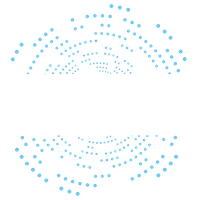Ah, Linux. It’s the sturdy rock upon which many of us have built our digital lives. It’s known for its robustness, security, and the passionate community that stands behind every distro, defending it like knights of old. But, lo and behold, not even the mightiest fortress is impervious to the cunning of the digital age’s siegemasters. Today, we gather around the digital campfire to recount the tale of the infamous XZ Hack, a backdoor so sneaky it could’ve moonlighted as a secret agent.
The Discovery: A Tale of Wits and Wires
It all began on a day much like any other, with developers and sysadmins busily tending to their digital domains. Little did they know, a shadow loomed over their cherished Ubuntu distributions, and indeed, many a Linux distro. The culprit? An inconspicuous vulnerability in the `xz` compression utility. For those uninitiated, `xz` is like the Swiss Army knife of file compression on Linux, beloved for its effectiveness.
The discovery of the hack reads like a detective novel. It was late one night when an eagle-eyed developer, fueled by caffeine and an unwavering sense of duty, noticed odd network traffic emanating from what was thought to be a dormant server. This digital Sherlock Holmes followed the breadcrumbs, leading to the revelation that `xz` wasn’t just compressing; it was compressing and phoning home.

The Backdoor: Not Your Average Debian Update
Now, how could this hack be used as a backdoor, you ask? Imagine inviting someone to house-sit, only to find they’ve installed a secret door in your living room. This backdoor in the `xz` utility allowed malicious actors to execute arbitrary code remotely. Essentially, they could slip into your Debian system, raid the fridge, change the locks, and you’d be none the wiser.
The List of Afflicted Distros: A Linux Roll Call
In the spirit of keeping you informed (and slightly entertained), here’s a table of all the Linux distros that found themselves caught in this web of deceit:
| Linux Distribution | Affected Versions |
|---|---|
| Debian | Ranging from 5.5.1alpha-0.1 |
| Red Hat Fedora | Rawhide and Fedora 40 Linux beta |
| Kali systems | Updated between March 26 and March 29 2024 |
| Arch Linux | Installation medium 2024.03.01 |
| OpenSUSE | Leap 15.2; 15.3; Tumbleweed up to 2023-04 |
Note: This is not an exhaustive list. If your distro isn’t listed, it doesn’t mean you’re safe. It means you’re either lucky or yet to be noticed.
The Discovery Part Deux: CVE-2024–3094
The vulnerability was officially cataloged under the CVE (Common Vulnerabilities and Exposures) number CVE-2024–3094. This designation serves as a bat-signal to sysadmins and security teams worldwide, alerting them to the danger lurking within their systems.
The Mitigation: A Step Backward for a Leap Forward
In a twist befitting the finest of plot lines, the recommended course of action is a strategic retreat. To mitigate the risk, one must downgrade the XZ utils to any version before 5.6.0. It’s a rare day when moving backward is the way forward, but in cyber security, flexibility is the name of the game.
1. Downgrade with Determination: Revert your `xz` utility to a version prior to 5.6.0. This rollback is your shield against the shadowy arrows of this exploit.
2. Patching with Precision: For those distros directly impacted, heed the call to arms (or updates, as it were). The guardians of these distributions have labored tirelessly to forge patches that will seal this breach.
3. Audit with an Eagle’s Eye: Employ your most trusted intrusion detection systems, comb through logs, and scrutinize your domains for any sign of unauthorized access. Vigilance is your watchword.
4. Educate and Empower: Share this saga with your team. Awareness and preparedness are potent antidotes to the venom of complacency.
Epilogue: The Digital Hygiene Chronicles
In the end, the XZ Hack serves as a poignant reminder of the constant vigilance required in the realm of cybersecurity. It’s a world where the good guys wear hoodies, the bad guys wear ties, and the battle rages on in the shadows of code.
So, dear readers, let us take this story to heart. Update your systems, hug your sysadmin (consensually), and remember, in the vast expanse of the internet, it’s better to be paranoid than sorry.





